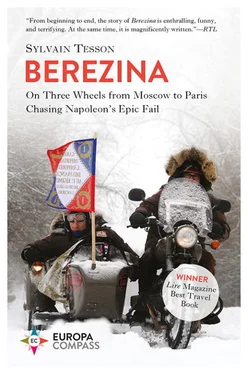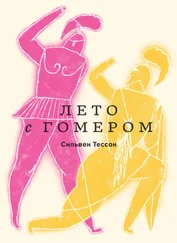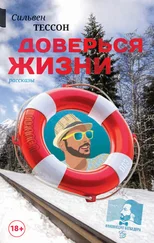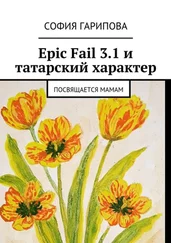In the fleeing column, the bravest ones turned bandits. They would go in search of food away from the road. However, they risked being captured by partisans and suffering a fate more cruel than the pangs of hunger. When there were no more horses, they started eating one another. Archives are full of testimonies of cannibalism and even autophagy, though they bother the witnesses who report it and evade the taboo. One day, Bourgogne refuses to accompany a Portuguese warrant officer to see Russian prisoners devour one another. And this army of half-skeletons, of blood-stained faces, who robbed companions killed in action, lifting their own rags to chew at their stumps, terrified of ending up in the jaws of their brothers, “were the same men,” Captain François writes, “who, six months earlier, had made Europe quake.”
The road to Smolensk, cluttered with carts, crates, abandoned cannons, and the corpses of men and horses, was a view of the apocalypse. Even Caulaincourt, famous for his nerves of steel, has a momentary collapse: “Never has a battlefield displayed such horrors.”
I was watching Goisque and Gras squeezing their bags into the motorbike trunks. What would we have done? How far would hunger have pushed us? What did we know about ourselves and others, we, who were so civilized, so urban, so well fed? Our relationship was limited to pleasant trips and evenings sprinkled with loud-mouth conversations. That’s what friendships were fueled by nowadays in the prosperous West. Once, however, lost in the forests of the Far East with Gras, six hundred miles north of Vladivostok, we thought we risked starvation. We finally found our way and—thankfully—missed out on the opportunity to test our sense of honor and sacrifice. As for Bourgogne, he laments the fact that hunger destroys feelings: “There were no more friends. You would look at one another with distrust, and even became ungrateful toward your best friends.” “Love one another” is the commandment of a prophet who has just had a big meal.
Napoleon entered Smolensk on November 9th. A hundred thousand soldiers had left Moscow. At Smolensk, the army was down to half. And only ten thousand of them had died in combat. There were forty-five thousand men left out of the half million that had crossed the Neman six months earlier. The debris of the Grande Armée took five days to gather in the city. The final elements did not appear until November 13th and Napoleon left the following day. It was a huge disappointment for all. From the Emperor to the camp follower, everybody had pinned all their hopes on this city. There, they would find supplies, well-stocked warehouses, country hospitals, and fresh reinforcements. There, they would rebuild their strength, put an end to the nightmare, turn against the enemy, and change their luck. There, the sovereign’s star would shine again. But Smolensk had not recovered from its destruction three months earlier. The state of the warehouses, according to Caulaincourt, “was unfortunately neither in accordance with what (the Emperor) hoped, nor with our needs…” The first troops ransacked the few supplies, pillaged the storerooms, cracked open the barrels, and left the men in the rear nothing but the leftovers of a waste which could have been avoided with discipline. All hopes of reviving the army drained away, but they had to keep going, like a curse. “Walking as fast as possible seemed for everyone the true secret to escaping danger,” Caulaincourt sums up. It was salvation in flight. And the column of the dying collapsed on the road to the west, pressed by Cossacks who were increasingly well armed, and increasingly daring.
Naturally, the cops chased us away from the city ramparts. We formed a column, Vassily at the head on his wide motorbike and sidecar, us in the middle on our khaki Ural, and Vitaly closing the convoy on his black machine. We crossed the Dnieper and took the direction of Orsha, in Belarus.
There was a milder spell on the road. Everything was dull and tepid. The world was a wash drawing dripping with smoke from the farms. We were going straight toward the setting sun. A cement building spiked with flags formed the border between the two allied countries. Since the fall of the USSR, Belarus had never betrayed its allegiance to Russia. The vassal led a quiet life under the protection of the parent company. Not the kind that would ogle the EU. We didn’t need to show our visas at the customs: there weren’t any. We entered Belarus like the blade of a Russian saber through the fat of a Ukrainian.
It was the Belarus plain. Where the Grande Armée suffered martyrdom. Panzers ravaged it a hundred and fifty years later, first in one direction, then in the other. It was fields, endless plains. In the summer, glorious wheat that was not repelled by growing over a mass grave. In winter, a stretch of snow without form or edges, with, on the horizon, log villages huddled against fir woods.
The cylinders were purring. We kept a constant speed. We listened out for the holy punch of the pistons. The mind grew numb. In his Zen and the Art of Motorcycle Maintenance, [7] Pirsig (Robert M.), Zen and the Art of Motorcycle Maintenance: An Inquiry into Values (William and Morrow, 1974).
Robert M. Pirsig talks about the tireless purr of the engine, which is preoccupied only with its internal strength. We kept still in the saddle with this very particular, almost mystical enjoyment, typical to motorcycling. It was so good to dwell in the certainty that you were riding a system in good working order. Your eyes focused on the line of the horizon. In the corner of your field of vision, white strips paraded by, hypnotic.
After twenty-four miles of Minsk highway, Vassily’s generator exploded. “Fifty-two pieces assembled with my own hands!” he said. “It’s a prototype.”
“I’m very disappointed,” Vitaly said.
It started to snow. The wind rose. The two Russians took the motorbike apart on the shoulder, in the gusts of wind, while I took a nap, lying on the tank, and Gras, in the sidecar, splashed by passing trucks, was reviewing Caulaincourt’s Mémoires . Goisque was nosing around, his camera over his shoulder, brooding over the line from Tapisseries by Charles Péguy : “This is the land that cannot be captured in a photograph.”
An hour later, Vassily looked up from his jigsaw puzzle. “I can’t find the origin of the problem, guys.”
“What are we going to do?” Gras said.
“Tow it!”
The strap was too short, and it was a terrible sight. Vitaly’s bike, attached to Vassily’s, dragged by inertia, swung from one side of the road to the other. We expected it to capsize any moment. Vassily didn’t seem to realize he was going too fast. On the slopes, Vitaly would adjust his brakes and avoid ramming into his friend by a yard. The scariest moment was when, in between two sways that made a Lithuanian truck driver very nervous, Vitaly lifted his visor, raised his thumb and shouted, “It’s cool!”
It took two hours in a service station to repair Vassily’s “prototype.”
And then three more hours to reach Barysaw. The cold was making a dent. At times, it bit a thumb, grabbed a foot, attacked a knee, your neck, your cheek. It had a life and plans of its own.
In 1812, on this very road, after the halt at Smolensk, the cold dropped by a few more degrees. The army was marching toward Krasnoi. Between the front and rear, the column unraveled over thirty-eight miles. Topography was on the side of the Russians. The Belarus undulations, the very same ones on which Vassily and Vitaly narrowly avoided killing themselves, put extra pressure on the Grande Armée. They had neglected to make any ice-proof horseshoes in Smolensk, so the few remaining horses in French possession kept slipping on the track. “It is to this lack of horseshoeing that we owe our biggest losses,” Caulaincourt says. Napoleon arrived in Krasnoi on November 15th with twenty thousand men, and was almost totally crushed. Kutuzov was waiting for him there with eighty thousand soldiers. If the Field Marshal had proved less shy, the French Emperor would have been captured or would have died, sword in hand. Far from suspecting that the bulk of the Russian army was before him, Napoleon ordered his Young Guard to attack what he mistook for beacons. The Russians, impressed by the charge, concluded that the Grande Armée still had its resources. And Napoleon fled toward Orsha as early as on the 18th, giving up, in spite of himself, on reaching Marshal Ney’s rear guard.
Читать дальше












